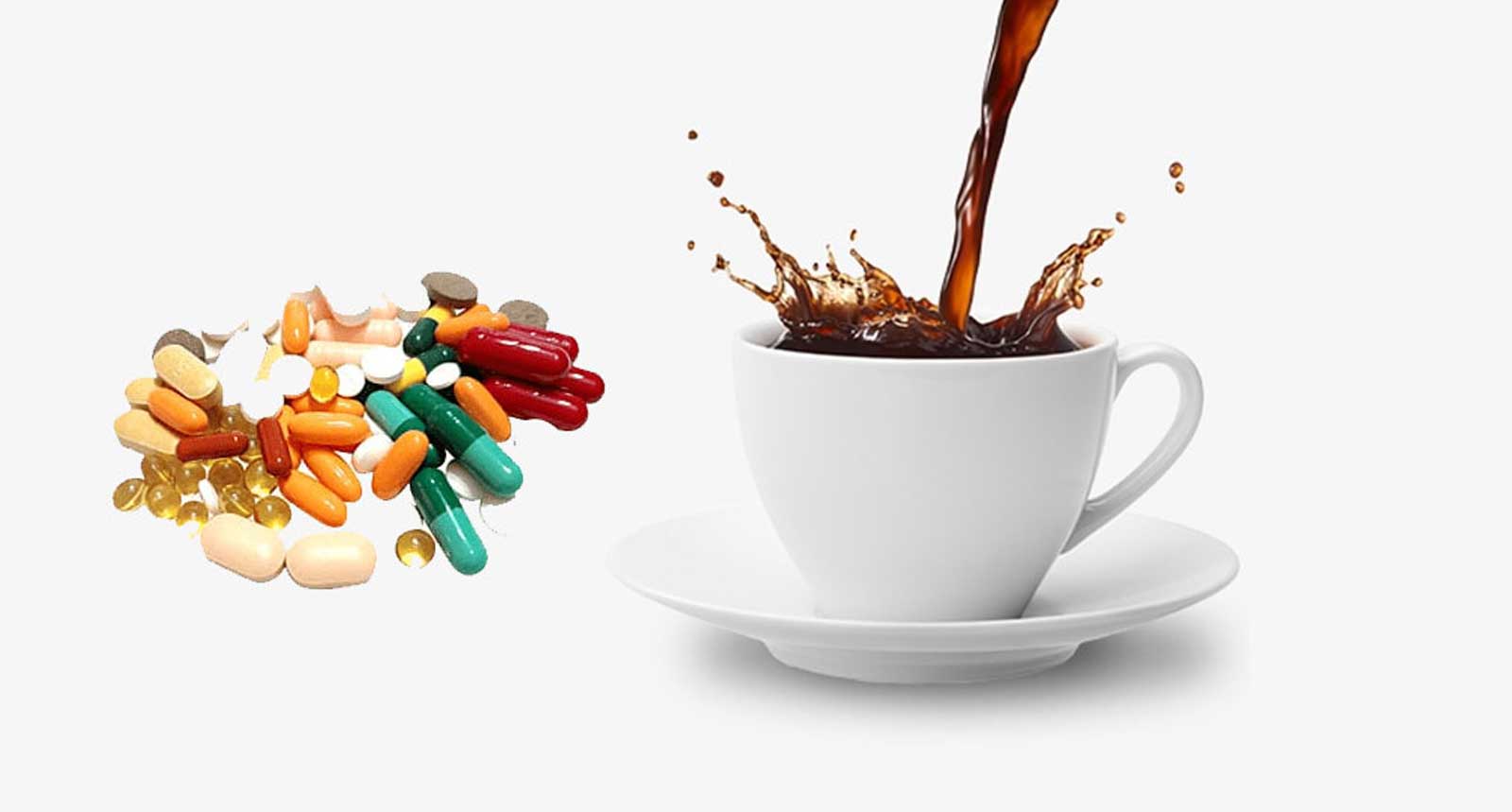How soon can you drink coffee after taking omeprazole?
Many people wonder about the possible interactions between this medicine and their daily cup of coffee.
The question “how soon can you drink coffee after taking omeprazole?” is commonly raised, hinting at the need for clear guidance on this topic. I aim to provide detailed insights addressing this concern, backed by medical research and expert opinions.
Omeprazole is a proton pump inhibitor (PPI) that works by reducing the amount of acid produced in the stomach.
Coffee, on the other hand, contains caffeine and high levels of tannic acid which can increase gastric acid secretion. Thus, it’s important to consider these two substances when taken together. According to medical
Understanding Omeprazole
Omeprazole is a widely prescribed medication under the class of drugs known as proton pump inhibitors (PPIs).
It functions by blocking the enzyme in the stomach wall that produces acid, thereby reducing the overall level of gastric acid.
This decrease in stomach acid can help to alleviate conditions such as gastroesophageal reflux disease (GERD), peptic ulcers, and Zollinger-Ellison Syndrome. Omeprazole is typically taken orally, once daily, an hour before meals.
However, the dosage and frequency can change based on the specifics of the individual’s condition and their overall health status. Despite its benefits, omeprazole, like any other medication, can have side effects and interactions that users should be aware of before starting a regimen.
Effects of Omeprazole on the Stomach
In the stomach environment, omeprazole acts directly on the gastric parietal cells – the cells responsible for the secretion of stomach acid.
By inhibiting the action of an enzyme called the proton pump, it successfully reduces the production of gastric acid.
This leads to an overall decrease in gastric acidity, which can provide relief from conditions that arise from excessive acid production, such as heartburn, acid indigestion, and the healing of gastric and duodenal ulcers.
However, long-term use of omeprazole can potentially lead to side effects such as vitamin B12 deficiency, hypomagnesemia, and an increased risk of bone fractures.
Furthermore, the reduced acidity can alter the stomach’s microbiome and the digestion of certain foods and drugs.
Thus, while omeprazole is effective in the management of acid-related disorders, it is important to use this medication under the supervision of a healthcare provider.
Coffee and Its Effects
Coffee, most commonly consumed as a beverage, is known for its stimulating effects on the human body, largely due to its caffeine content.
Caffeine, a natural stimulant, works by blocking the effects of adenosine, a neurotransmitter that relaxes the brain. By doing so, it increases alertness and reduces the feeling of being tired.
However, it’s worth noting that coffee is much more than just caffeine. It contains hundreds of different compounds, some of which have potential health benefits, while others could be harmful.
Certain compounds in coffee such as polyphenols possess antioxidant properties that could play a role in preventing diseases like heart disease and certain types of cancer.
On the flip side, coffee can also have negative effects. It can lead to symptoms such as restlessness, insomnia, and digestive issues, especially when consumed in excess.
Furthermore, in individuals with certain health conditions such as acid reflux or GERD, the acidity of coffee can trigger their symptoms.
It’s therefore essential for individuals to consider their own health status and consult with a healthcare provider if necessary when deciding on the amount of coffee to consume.
Interactions Between Coffee and Omeprazole
The potential interactions between coffee and omeprazole are an important consideration for those taking this medication. Some research suggests that coffee, particularly caffeinated coffee, can increase the production of stomach acid.
This could theoretically counteract the effects of omeprazole, which works to decrease stomach acid production.
On the other hand, omeprazole can potentially alter the way our bodies break down caffeine, leading to increased effects of caffeine, such as jitteriness and insomnia.
Additionally, coffee can stimulate the secretion of gastrin, a hormone that can increase gastric acid secretion.
This could potentially exacerbate digestive issues, especially in individuals with acid reflux or GERD, despite the usage of omeprazole.
However, these interactions can vary greatly among individuals, and further scientific research is needed to understand the precise interaction between coffee and omeprazole.
As always, it’s recommended to consult a healthcare provider for personalized advice.
Ideal Time Gap Between Omeprazole and Coffee
In terms of timing, it’s generally recommended to maintain a certain time gap between taking omeprazole and consuming coffee.
Ideally, omeprazole should be taken on an empty stomach, about one hour before a meal. This allows the medication to be fully absorbed before food intake.
Coffee, especially if caffeinated, should ideally be consumed at least two hours after the omeprazole dose.
This will minimize the chance of coffee interfering with the absorption and effectiveness of the medication.
However, given the potential variability in how individuals respond to coffee and omeprazole, it’s advisable to speak with a healthcare provider for personal guidance on this matter.
Factors Influencing the Time Gap
There are several factors that can influence the recommended time gap between taking omeprazole and drinking coffee:
Individual Metabolism
Each person metabolizes substances at a different rate. Some people may break down caffeine or omeprazole more quickly than others, which could affect how these substances interact in the body.
Gastric pH Levels
The acidity of your stomach can play a role in how medication is absorbed. Coffee, which is acidic, could potentially affect this process.
Health Conditions
Individuals with certain health conditions, such as acid reflux or GERD, might need to follow stricter schedules when it comes to taking medication and consuming coffee.
Other Medications
If you are taking other medicines alongside omeprazole, these could also potentially interact with coffee and affect the optimal time gap.
As always, consult a healthcare provider for personalized advice, as these factors can significantly vary among individuals.
Potential Risks and Precautions
Despite the common usage of both coffee and omeprazole, their simultaneous consumption can potentially lead to undesirable effects. Coffee, due to its acidic nature, can counterbalance the efficacy of omeprazole, which is designed to reduce stomach acidity.
This can lead to the medication not performing to its full potential, thereby prolonging or worsening the symptoms it was intended to treat.
Additionally, caffeine can stimulate gastric acid secretion, potentially leading to discomfort or exacerbating conditions like acid reflux or GERD in susceptible individuals.
Moreover, both coffee and omeprazole can cause side effects individually. Overconsumption of coffee may lead to anxiety, sleep disturbances, or an upset stomach, whereas frequent use of omeprazole may cause headaches, nausea, or diarrhea.
As a precaution, maintain a consistent schedule when taking omeprazole and allow sufficient time before consuming coffee.
Monitor your body’s responses carefully and seek medical attention if side effects persist or become severe. To ensure the best health outcomes, any changes in your routine involving medication and dietary habits should be discussed with your healthcare provider.
Conclusion
In conclusion, the interaction between coffee and omeprazole is complex and can vary greatly between individuals. While consuming both is generally safe, it is important to be mindful of potential complications and individual sensitivities.
It is advisable to maintain a consistent medication schedule, allow sufficient time between taking omeprazole and consuming coffee, and observe your body’s responses attentively.
Always consult with your healthcare provider before making any major changes to your medication or dietary habits. The key lies in maintaining a balance and ensuring your health and well-being is always a priority.







